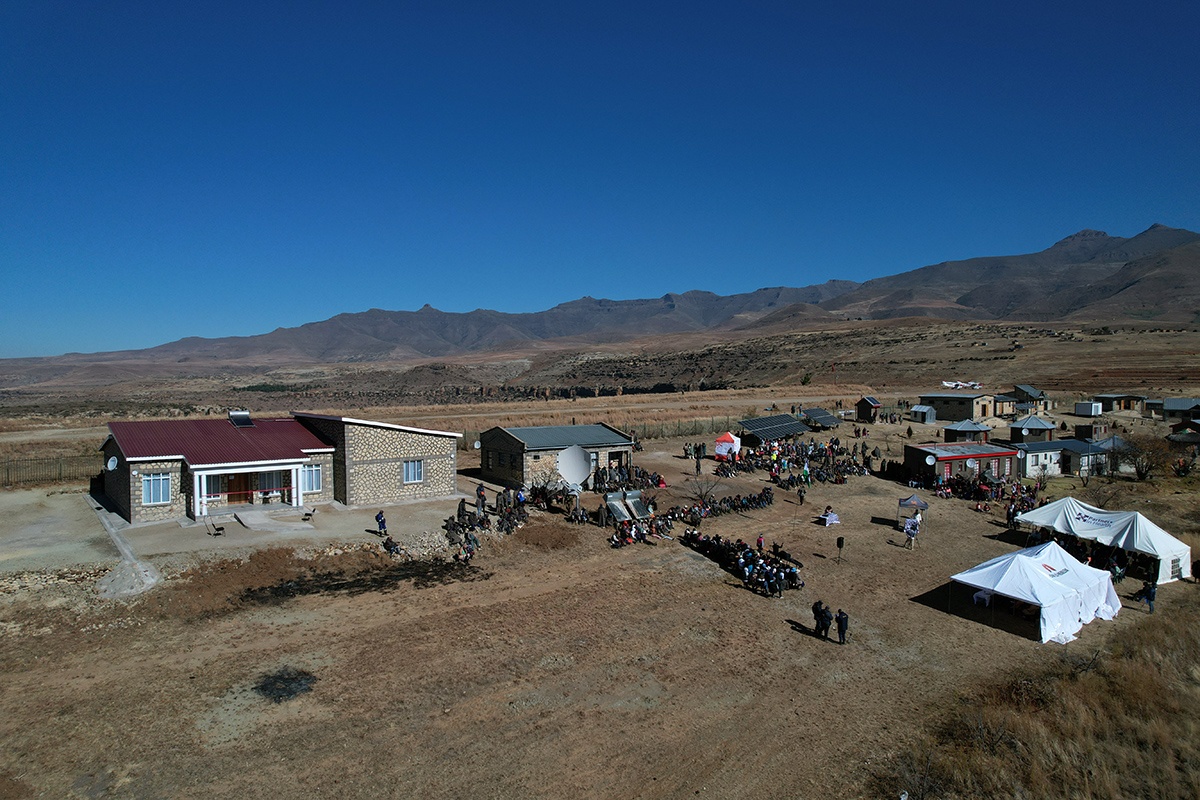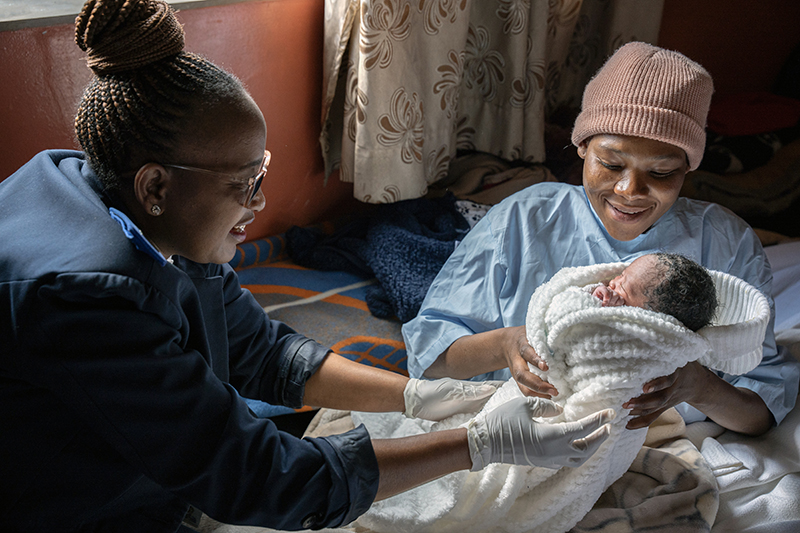PIH Opens New Maternal Waiting Home in Lesotho
The 32-bed facility provides a safe space for women in Lebakeng, a remote region of the mountainous country.
Posted on Oct 8, 2024

Maternal mortality remains a daunting challenge in Lesotho, with a rate of 566 deaths per 100,000 live births, surpassing the Southern African regional average of 545 per 100,000, according to the World Health Organization. This alarming statistic has driven Partners In Health (PIH) Lesotho to take decisive action, particularly in remote areas where access to prenatal care and safe delivery services is limited.
In a significant stride toward reducing maternal and neonatal deaths, PIH Lesotho built and opened a new maternal waiting home. The facility is designed to provide expectant mothers with a dignified environment as they approach their delivery dates.
The former maternal waiting home, which sits adjacent to the new one at Lebakeng Health Center, recently became overcrowded. This forced many women to endure risky home deliveries or undertake arduous journeys while in labor. To address space constraints, the new building is larger and has 32 beds, a significant increase from the original 8-bed home.
In collaboration with the government, PIH Lesotho officially opened the facility in June during a ceremony led by Prime Minister of Lesotho Ntsokoane Matekane. He lauded the initiative, noting the challenges many expectant mothers face, such as long distances to health care facilities, poor road conditions, and the adverse effects of climate change on health services. These factors often prevent safe deliveries, leading to unnecessary deaths. Matekane emphasized that the new facility would allow mothers to stay at the clinic both before and after childbirth, providing a healthy and supportive environment that significantly improves health outcomes.
More Than a Building
Since 2009, PIH Lesotho has included maternal waiting homes at its seven mountain clinics, located in some of the most remote, underserved regions of the country. The facilities are part of a comprehensive effort to increase facility-based deliveries and reduce mortality.
In addition to a safe space, “we provide social support, including food, linen, and baby clothes, ensuring the mothers are comfortable while waiting at the clinic,” says Dr. Melino Ndayizigiye, executive director of PIH Lesotho.

Health care workers at the homes conduct regular check-ups, offer nutritional guidance, and provide emotional support, ensuring that women are well-prepared for childbirth. Each of those efforts align with PIH’s belief that five key elements are needed to strengthen health systems: staff, stuff, space, systems, and social support.
About 100 miles north of Lebakeng Health Center, another maternal waiting home is under construction at Bobete Health Center. For years, the clinic has struggled with limited space. To maximize space, staff removed all bed frames and placed mattresses directly on the floor. This adjustment, while not a perfect solution, created room for more mattresses, accommodating the increase of pregnant women admitted to the home.
There are “...only four bedrooms available in the existing maternal waiting home. One room is allocated to new mothers, leaving three rooms to accommodate an influx of 25 to 38 women each month,” says Palesa Khomonngoe-Moea, Bobete Health Center’s nurse-in-charge.
Looking ahead, she believes the facility will have a transformative impact, particularly for women who often walk for hours to reach the clinic. Once complete, the new building will also have 32 beds.
The construction of maternal waiting homes is more than an infrastructure project; it is a symbol of hope for the future of maternal health in Lesotho.
Between January 2021 and August 2024, a total of 11,691 women received care across PIH Lesotho’s maternal waiting homes.
Through continued efforts, in partnership with the government, the journey to motherhood is becoming safer, and the goal to achieving a healthier future for Lesotho’s mothers and children is gradually becoming a reality.

